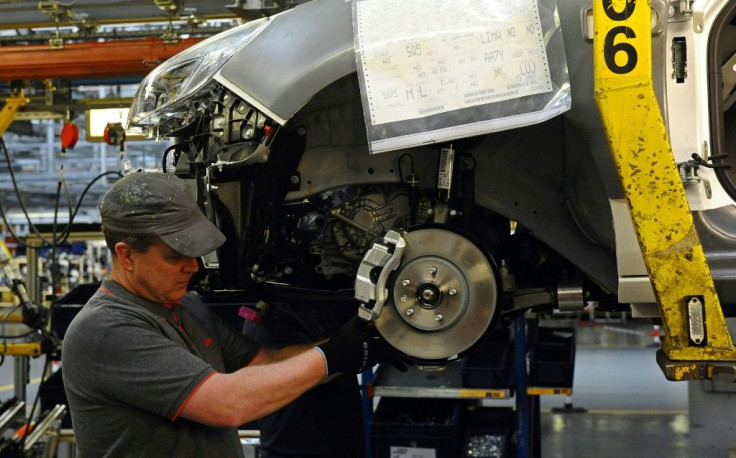UK Car Output Crashes In 2019 On Bumpy Road To Brexit

Britain's car output crashed last year to a near-decade low, hit by delays to Britain's exit from the European Union, industry data showed Thursday.
The nation's production dived 14.2 percent to 1.3 million vehicles in 2019 from the previous year, the Society of Motor Manufacturers and Traders (SMMT) revealed on the eve of Britain's long-awaited departure from the EU.
That was the lowest annual production level since 2010, according to the SMMT industry organisation that also blamed weak consumer confidence worldwide and poor demand for high-polluting diesel cars.
Factory shutdowns in the face of last year's Brexit delays had a "marked" impact on the sector, it noted.
"Output was affected by multiple factors, including weakened consumer and business confidence at home, slower demand in key overseas markets, a number of significant model production changes and a shift from diesel across Europe," the SMMT said.
"Factory shutdowns in the spring and autumn, timed to mitigate expected disruption arising from the anticipated departure of the UK from the EU on 29 March and 31 October, also had a marked effect."
The nation's EU departure was originally scheduled for March 29, 2019, but was then delayed three times owing to deadlock in Britain's parliament. It will now occur finally on Friday.
Going forward, SMMT Chief Executive Mike Hawes repeated the industry's call for a free trade agreement that includes no tariffs, to help carmakers.
Britain's car industry, which is largely foreign-owned, employs around 160,000 people in the country and is eager for a post-Brexit Brussels trade deal that will safeguard its future.
"The fall of UK car manufacturing to its lowest level in almost a decade is of grave concern," added Hawes.
"Every country in the world wants a successful automotive sector as it is a driver of trade, productivity and jobs."
Hawes said that given the sector's uncertainty, "it is essential" that Britain re-establish "global competitiveness and that starts with an ambitious free trade agreement with Europe, one that guarantees all automotive products can be bought and sold without tariffs or additional burdens.
"This will boost manufacturing, avoid costly price rises and maintain choice for UK consumers," he added.
In a separate development on Thursday, Jaguar Land Rover announced that its long-serving chief executive Ralf Speth would step down in September.
His departure follows a tough time for Indian-owned JLR, having cut thousands of jobs in recent years owing to slowing sales.
"I want to thank Ralf for his passion and commitment over the last 10 years," said JLR chairman Natarajan Chandrasekaran.
"Ralf developed Jaguar Land Rover from a niche, UK-centric manufacturer to a respected, technological leading... company."
© Copyright AFP 2024. All rights reserved.





















